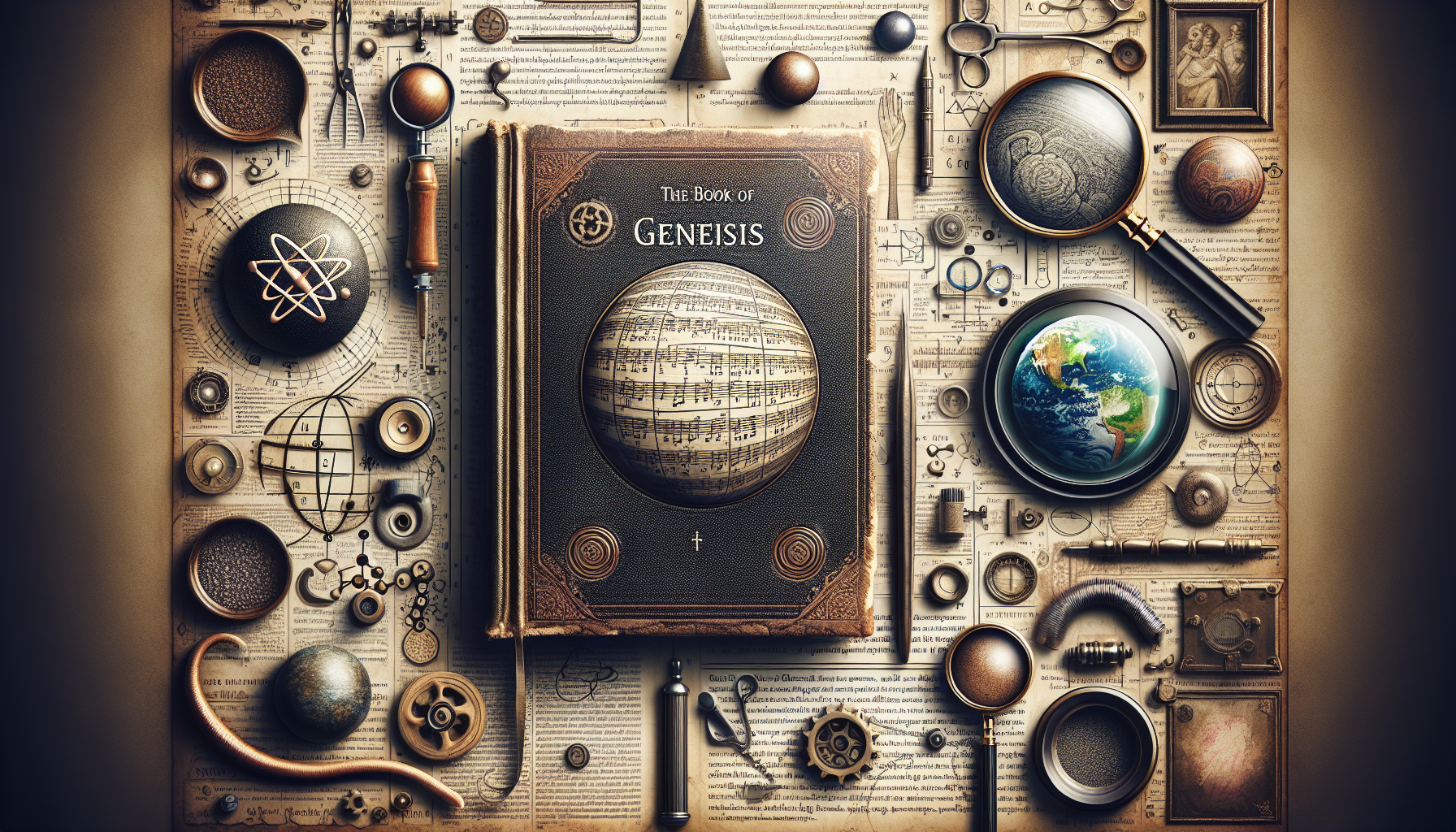Scrutinizing Genesis: A Secular Analysis
November 04, 2024Categories: Biblical Studies and Critiques, Book Summary

The Bible Explained from a Secular and Skeptical Perspective with George and Caroline
Delve into "The Bible Explained from a Secular and Skeptical Perspective," a podcast that critically examines each book of the Bible. We provide thought-provoking Bible criticism while celebrating its literary significance. Join us for an engaging secular Bible analysis that challenges traditional interpretations and offers fresh insights. Ideal for those curious about the Bible's impact from a non-religious viewpoint. Discover the history, culture, and stories that make the Bible a fascinating text to explore.
The Book of Genesis is the first book of the Bible and serves as a foundational text for both Judaism and Christianity. As a historian and skeptic, examining Genesis from a secular/academic perspective invites us to consider its historicity, its moral implications, and conflicts it may present with modern understanding and science.
Creation and Science
The Book of Genesis begins with two distinct creation stories. The first describes a six-day process where a divine being creates the world in a structured, orderly manner, while the second provides a more narrative-driven account centering around Adam and Eve. From a scientific standpoint, these stories conflict with the modern understanding of cosmology and biological evolution.
- Creation vs. Evolution: Genesis posits a sudden creation, conflicting with evolutionary biology, which suggests life developed over billions of years.
- Young Earth: The age of Earth calculated by some literal interpretations of Genesis is approximately 6,000-10,000 years old, while scientific findings suggest Earth's age to be around 4.5 billion years.
Morality and Modern Standards
Genesis contains several narratives that can raise questions about morality when viewed through today's ethical lens.
- The Fall: The story of Adam and Eve introduces the concept of original sin. Some see this story as maintaining an innate human flaw that doesn't align with the idea of innate human goodness promoted today.
- The Story of Abraham: Commands God gives, such as asking Abraham to sacrifice Isaac, can clash with modern ethical views on child protection and moral autonomy.
- Sodom and Gomorrah: This story reflects ancient views on sexuality and punishment, which may conflict with contemporary perspectives on morality and justice.
Historical Inconsistencies
Genesis covers historical narratives that some scholars suggest lack archaeological or historical evidence.
- The Flood: The story of Noah's Ark parallels other ancient flood myths like the Epic of Gilgamesh, raising questions of its validity as a purely historical event.
- Patriarchs: Figures such as Abraham, Isaac, and Jacob lack corroborative evidence outside biblical texts, prompting debate among historians regarding their historical authenticity.
Contradictory Nature
Throughout Genesis, inconsistencies arise that challenge the text's internal coherence.
- Two Creation Accounts: The dual narratives of creation present different orders of events, confusing readers and theologians alike.
- Mixed Messages on Morality: Stories like Cain and Abel pose questions on justice and divine preference that may leave readers puzzled.
Genesis remains significant as a religious and cultural text, influential in shaping societal norms and ethics. However, from a secular perspective, it is essential to analyze it with a critical eye, acknowledging its profound impact while examining its inconsistencies and historical claims.
 |
Discover A New Perspective On God And Religion With "The Concept"
|
Post Tags:
Like the Site? You'll Love the Book!
This book is a crash course, meant to catapult you into a world where you start to see things how they really are, not how you think they are. The focus of this book is on logical fallacies, which loosely defined, are simply errors in reasoning. With the reading of each page, you can make significant improvements in the way you reason and make decisions.
Get 20% off this book and all Bo's books*. Use the promotion code: websiteusers
* This is for the author's bookstore only. Applies to autographed hardcover, audiobook, and ebook.